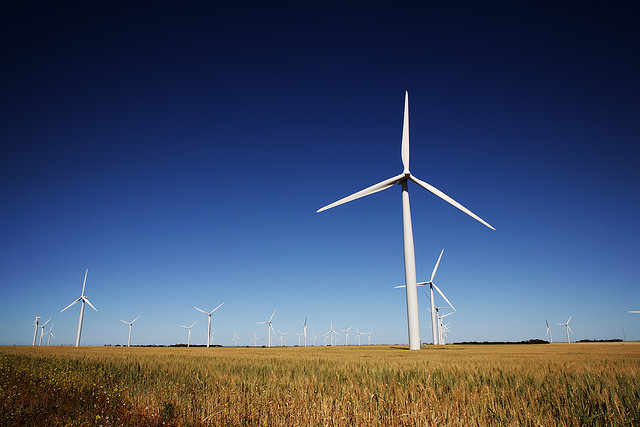Last week the advisory board of one of the largest asset owners in the world, the $857.1 billion Norway Pension Fund Global, concluded that divesting from fossil fuels would be an unwise financial decision that would reduce returns.
But Edward Davey, Britain’s Secretary of State for Energy and Climate Change, said Monday he thinks fossil fuel companies could become the sub-prime assets of the future.
He called on Britain’s pension funds to examine the risk associated with oil, gas and coal investments.
From the Telegraph:
Investing in fossil fuels is becoming increasingly risky because global action to tackle climate change will curb demand, forcing companies to leave unprofitable reserves in the ground, Ed Davey, the energy secretary, has warned.
Financial authorities must examine the risks posed by coal, oil and gas companies to prevent pension funds investing in what could become “the sub-prime assets of the future”, Mr Davey said.
The comments are Mr Davey’s first intervention into the debate over the “carbon bubble”, the theory that the world’s existing fossil fuel reserves are overvalued because the majority must be left unburned in the ground if extremes of global warming are to be avoided.
Mr Davey told the Telegraph: “One has got to worry about the investments for pensioners.
“If pension funds are investing in companies or banks that have on their balance sheets huge amounts of assets in fossil fuels, and those assets don’t give the return that people expect – because of changes in technology where low-carbon becomes cheaper or because of the world having to take action against carbon emissions – one has got to protect those pensioners and those investments.”
More from Mr. Davey:
Mr Davey singled out coal – the dirtiest of the fossil fuels – as “the short-term biggest worry by a long way” as countries including China commit to cap their coal use. “Investing in new coal mines is going to get very risky,” he said.
He acknowledged that oil and gas would still be needed for some time in the absence of green alternatives, and defended the UK’s investment in the North Sea and shale. But he said oil and gas investments too would become a worry “over the next decades”. He suggested fossil fuel use could be “almost non-existent” within three or four decades and described BP and Shell as strong assets only “over the medium term”.
[…]
“I don’t want our financial system to end up underperforming for pensioners. I don’t want them to have to invest in stranded assets. I don’t want to get to a point where in 10 to 20 years’ time these assets turn out to be the new sub-prime assets of the future.”
To read more coverage of the debate over fossil fuel divestment, click here.
Photo by Paul Falardeau via Flickr CC License

